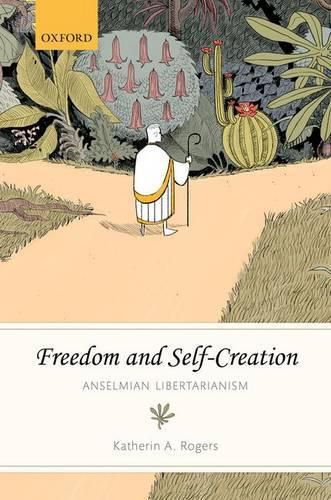Readings Newsletter
Become a Readings Member to make your shopping experience even easier.
Sign in or sign up for free!
You’re not far away from qualifying for FREE standard shipping within Australia
You’ve qualified for FREE standard shipping within Australia
The cart is loading…






Katherin A. Rogers presents a new theory of free will, based on the thought of Anselm of Canterbury. We did not originally produce ourselves. Yet, according to Anselm, we can engage in self-creation, freely and responsibly forming our characters by choosing ‘from ourselves’ (a se) between open options. Anselm introduces a new, agent-causal libertarianism which is parsimonious in that, unlike other agent-causal theories, it does not appeal to any unique and mysterious powers to explain how the free agent chooses. After setting out Anselm’s original theory, Rogers defends and develops it by addressing a series of standard problems levelled against libertarianism. These include the problem of ‘internalism–in that an agent is not the source of his original motivations, how can the structure of his choice ground his responsibility?; the problem of Frankfurt-style counterexamples–Do we really need open options to choose freely?; and the problem of luck–If nothing about an agent before he chooses explains his choice, then isn’t the choice just dumb luck? (The Anselmian answer to this perennial criticism is especially innovative, proposing that the critic has the relationship between choices and character exactly backwards.) Finally, as a theory about self-creation, Anselmian Libertarianism must defend the tracing thesis, the claim that an agent can be responsible for character-determined choices, if he, himself, formed his character through earlier a se choices. Throughout, the book defends and exemplifies a new methodological suggestion: someone debating free will ought to make his background world view explicit. In the on-going debate over the possibility of human freedom and responsibility, Anselmian Libertarianism constitutes a new and plausible approach.
$9.00 standard shipping within Australia
FREE standard shipping within Australia for orders over $100.00
Express & International shipping calculated at checkout
Katherin A. Rogers presents a new theory of free will, based on the thought of Anselm of Canterbury. We did not originally produce ourselves. Yet, according to Anselm, we can engage in self-creation, freely and responsibly forming our characters by choosing ‘from ourselves’ (a se) between open options. Anselm introduces a new, agent-causal libertarianism which is parsimonious in that, unlike other agent-causal theories, it does not appeal to any unique and mysterious powers to explain how the free agent chooses. After setting out Anselm’s original theory, Rogers defends and develops it by addressing a series of standard problems levelled against libertarianism. These include the problem of ‘internalism–in that an agent is not the source of his original motivations, how can the structure of his choice ground his responsibility?; the problem of Frankfurt-style counterexamples–Do we really need open options to choose freely?; and the problem of luck–If nothing about an agent before he chooses explains his choice, then isn’t the choice just dumb luck? (The Anselmian answer to this perennial criticism is especially innovative, proposing that the critic has the relationship between choices and character exactly backwards.) Finally, as a theory about self-creation, Anselmian Libertarianism must defend the tracing thesis, the claim that an agent can be responsible for character-determined choices, if he, himself, formed his character through earlier a se choices. Throughout, the book defends and exemplifies a new methodological suggestion: someone debating free will ought to make his background world view explicit. In the on-going debate over the possibility of human freedom and responsibility, Anselmian Libertarianism constitutes a new and plausible approach.